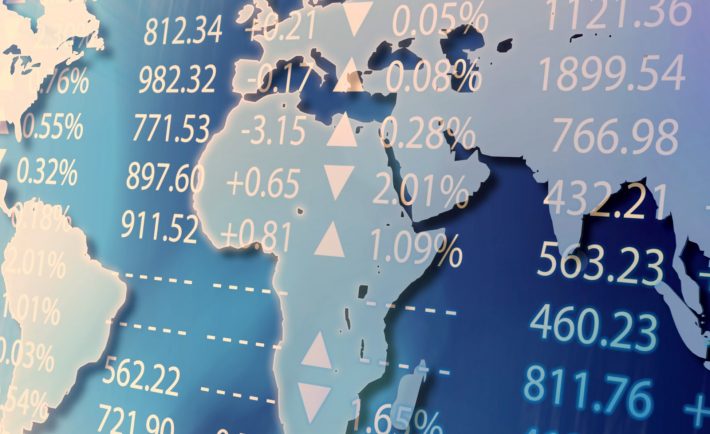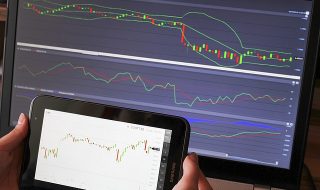
Forex trading is a popular investment activity among Singaporeans, and the city-state has established itself as a hub for foreign exchange trading in the region. Singapore’s location at the crossroads of major trading routes, coupled with its advanced financial infrastructure, has made it an attractive destination for traders worldwide.
In October, it was announced by The Monetary Authority of Singapore (MAS) that the average daily trading volumes (ADTV) for foreign exchange (FX) in Singapore had risen to US$929 billion in 2022, marking an increase of 45% from April 2019. This steady growth helped Singapore to maintain its position as the world’s third-largest FX center, following the UK and the US, with a global FX volume share of 9.5% as of April 2022, up from 7.7% in April 2019. The growth in FX ADTV in Singapore was widespread across major currencies, with the US dollar, Japanese yen, and euro leading the way, with forex trade volume increasing from 39% to 50% in 2022. Following closely behind were the Chinese yuan and the Singapore dollar.
This article explores the best currencies to trade from Singapore, analyzing their performance against each other and providing insights into why they are popular among Singaporean traders.
Top Currencies for Singaporean Traders
The US dollar, euro, Japanese yen, Australian dollar, and Singapore dollar are among the best currencies to trade in Singapore. Each of these currencies has unique characteristics and trading patterns, making them ideal for different types of investors.
https://pixabay.com/id/photos/dolar-mata-uang-uang-dolar-amerika-499481/
The US dollar (USD) is the most widely traded currency in the world, and its influence extends far beyond the United States. The USD is often used as a reserve currency by central banks around the world, and many commodities, such as oil, are priced in dollars. As a result, the USD is one of the most popular currencies for trading from Singapore.
When trading USD from Singapore, traders often pair it with the Singapore dollar (SGD) or other major currencies, such as the euro, Japanese yen, or Australian dollar. The performance of the USD against the SGD and other currencies is closely watched by traders, as it can have a significant impact on their investment portfolios.
In recent years, the USD has experienced highs and lows against the SGD. In 2020, the USD weakened significantly against the SGD due to global economic impacts. However, the USD has since rebounded, and as of March 2023, it is trading at around 1.33 SGD.
Overall, the USD remains a popular currency for trading from Singapore, and its performance against the SGD and other currencies will continue to be closely monitored by traders in the coming years.
Japan is a major regional economic power with strong trade and investment ties with Singapore, making the JPY an attractive option for traders.
When trading JPY from Singapore, traders often pair it with other major currencies, such as the USD, EUR, or AUD. Traders are drawn to the JPY for several reasons, including its status as a safe-haven currency during global economic uncertainty. Japan’s strong export-oriented economy and the policies of the Bank of Japan also play a role in the JPY’s popularity as a trading currency.
The euro is one of the best currencies to trade in Singapore due to its liquidity, stability, and global relevance. Traders in Singapore can benefit from trading the euro by diversifying their portfolios, managing currency risk, and taking advantage of trading opportunities in the forex market. Additionally, The EUR is a popular choice for traders due to the strong economic ties between the EU and Singapore and the EUR’s status as a reserve currency.
The policies of the European Central Bank also play a role in the EUR’s popularity as a trading currency. The euro is backed by the European Central Bank (ECB), which implements policies to maintain price stability and support economic growth in the eurozone. This makes the euro less prone to sudden fluctuations and provides a sense of security to traders looking for a stable currency to trade.
The Australian dollar (AUD) is a popular currency for trading from Singapore due to its close economic ties with the Asia-Pacific region, including Singapore. Australia is a major exporter of natural resources, and the AUD is closely tied to commodity prices, making it an attractive option for traders.
The AUD is a commodity currency closely linked to the prices of natural resources such as coal, iron ore, and gold. As Singapore is a major hub for commodity trading in the Asia-Pacific region, traders can use the close correlation between the AUD and commodity prices to make profitable trades. This makes the AUD an attractive currency for traders looking to diversify their portfolios and exploit market opportunities.
Traders can profit from the AUD’s volatility by trading AUD currency pairs such as AUD/USD or AUD/JPY.
https://pixabay.com/id/photos/singapura-uang-catatan-mata-uang-1821535/
The Singapore dollar (SGD) is the official currency of Singapore and is a popular currency for trading both domestically and internationally. As one of Asia’s most stable and developed economies, Singapore attracts significant foreign investment, which drives demand for the SGD.
Singapore has a stable political and economic environment, with controlled inflation and a strong financial system, which adds to the attractiveness of the SGD as a currency for trading. Furthermore, the Monetary Authority of Singapore (MAS) follows a managed float exchange rate regime, which allows for some flexibility in the value of the SGD while maintaining stability. This makes the SGD an attractive currency for forex traders looking for a currency with lower volatility.
The SGD is often used as a proxy for other emerging market currencies in the region, adding to its popularity in forex trading. Overall, the SGD’s stable economy, strong financial system, and flexibility make it a popular currency for trading in Singapore.





